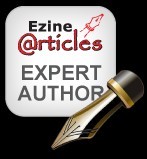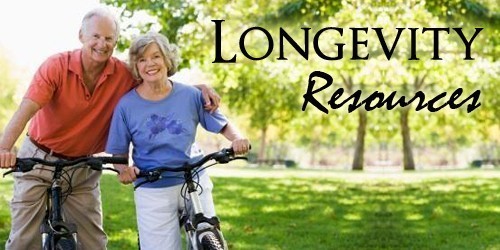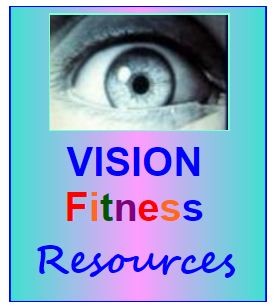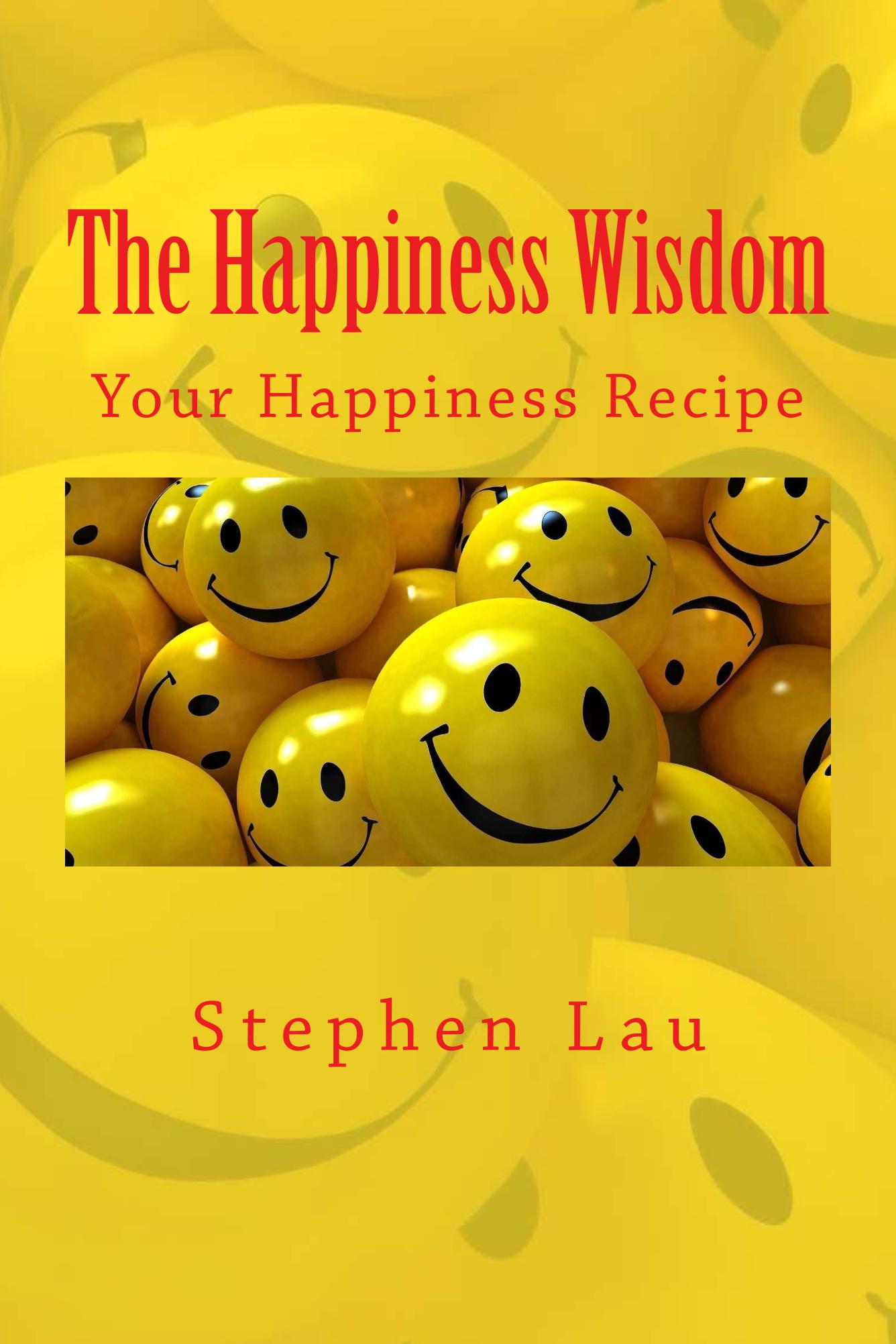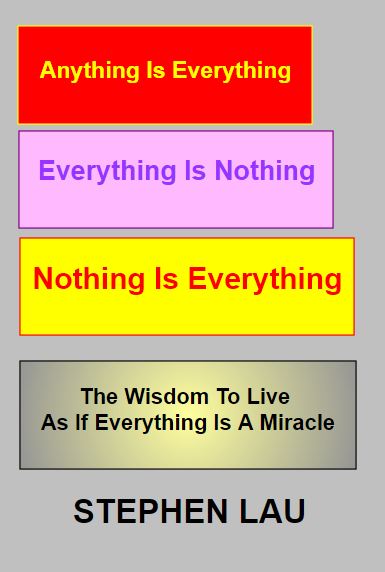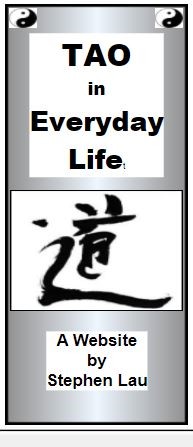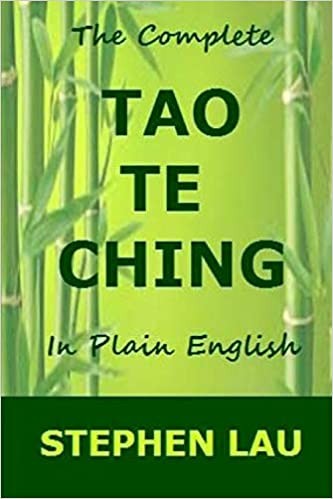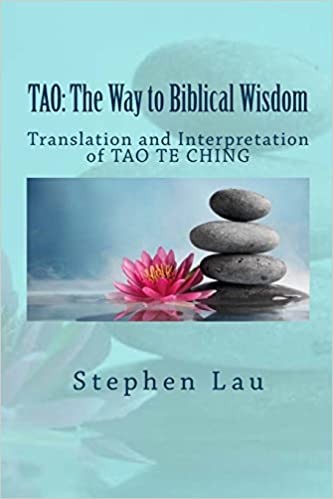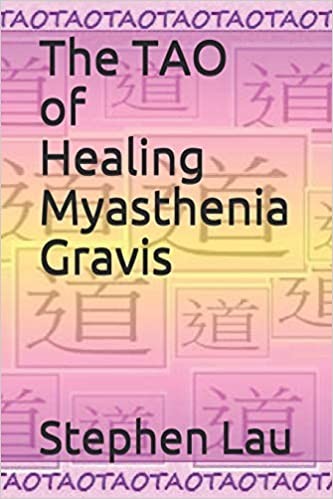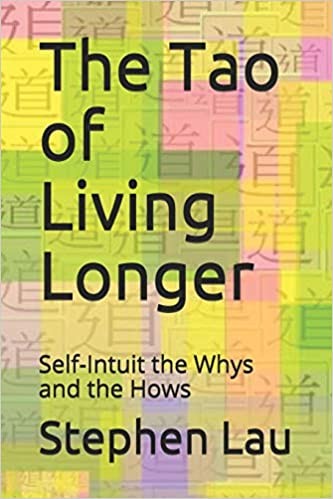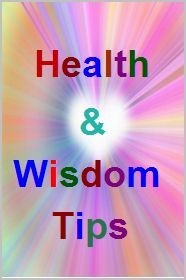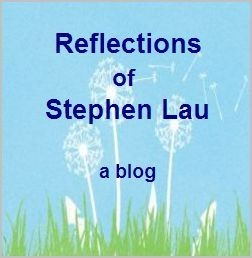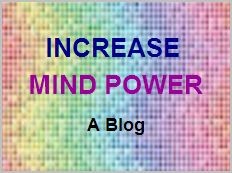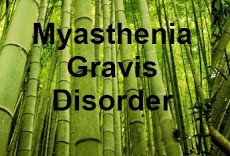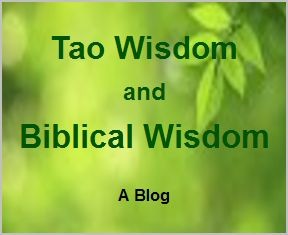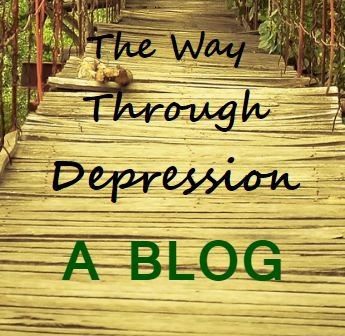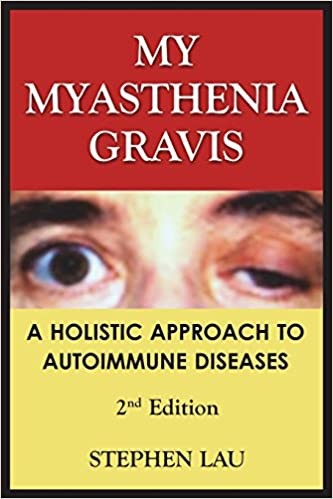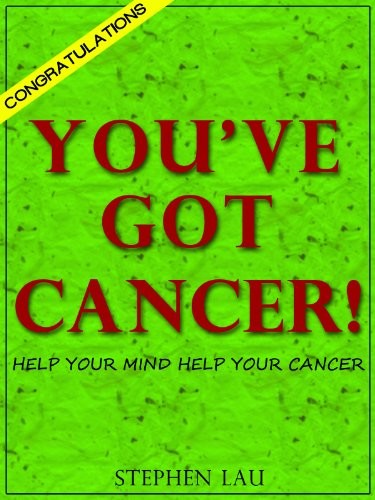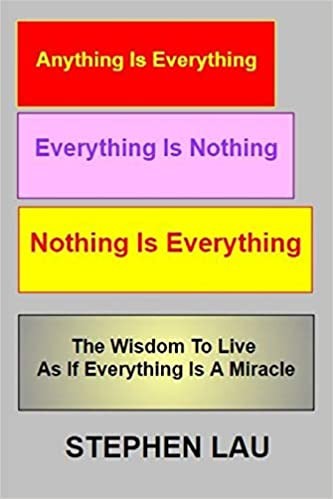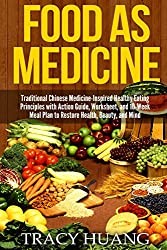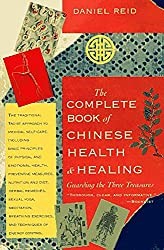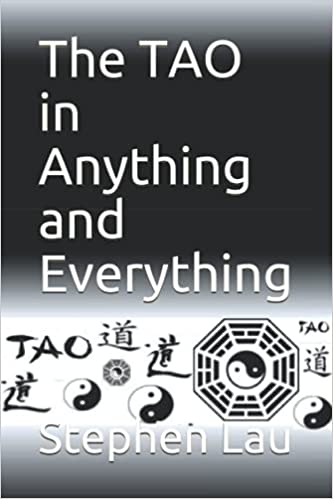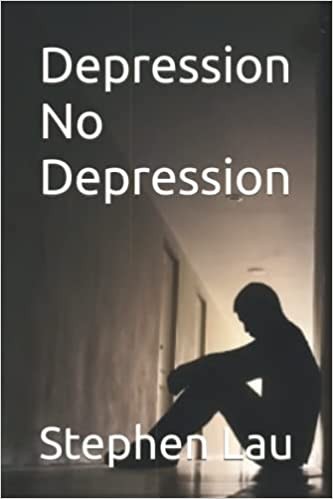
from part of a 9-foot painting by Stephen Lau

In Chinese medicine, natural healing and disease management stem from invisible energy healing. It is the internal life energy (qi) flowing from your conscious mind into the natural and man-made world around you. It is this continuous stream of energy healing that transforms the chaos within your body and mind -- often caused by distorted thoughts and accumulative toxins -- into recovery and rejuvenation. Energy healing is effective disease management.
Essentials of Natural Healing in Chinese Medicine
In Chinese medicine, natural healing is a long and slow process of steady transformation of self, requiring the following essential qualities:
Compassion and loving-kindness (beginning of enlightenment and self-knowledge); patience (healing is slow and cannot be rushed).
Self-Knowledge and Intuitive Wisdom
With these qualities, transformation will begin to open the door to self-knowledge. In fact, natural healing is self-knowledge: you are your own healer. Yes, only you know your body's constitution, only you know your own physical needs, and only you can activate the energy healing power inherent in you.
With the intuitive knowing of who you are and what you want from life, you will then acquire the wisdom in seeing the true nature of reality -- getting in touch with your soul and discovering undiscovered insight and inspiration for energy healing and disease management.
With intuitive wisdom, you start to cultivate the art of living well, which holds the key to natural healing and disease management. This wisdom is the foundation of Chinese medicine, which is different from that of Western medicine.
Western Medical Healing
Western medicine is based on the medical model in which a doctor identifies a set of symptoms of a disease or disorder, and makes a diagnosis to confirm the doctor’s diagnosis and examination; it focuses on pathology, drug, and surgical therapies for disease management.
Chinese Natural Healing
The Chinese healing approach, on the other hand, is based on the balance and harmony of the person -- more specifically, the healthy lifestyle for natural healing and disease management. It aims at removing the fundamental causes, rather than just the symptoms, of a disease or disorder. Chinese healing is about energy healing.
Chinese healing encompasses the following principles for disease management:
Science
The science of natural healing is based on the eternal wisdom that has been refined over many thousands of years. It is the science of truth expressed in life and living for optimum disease management.
Philosophy
The philosophy of natural healing is based on the thinking of the sages seeking balance and harmony with self and Nature for energy healing and disease management.
Religion
The religion in natural healing is based on disciplines conducive towards sublime states of being, in which all aspects of life are enlightened.
Thus, the Chinese natural healing has its foundation built on thousands of years of culture and the philosophy of Buddhism, Taoism and Zen. From that foundation come the Nine Pillars of Wisdom in the art of living well. Essentially, it is a simple practical science of life, where principles are universally applicable to each individual's daily existence for disease management and natural healing.
The Chinese way may not necessarily be a better way, but it certainly offers profound wisdom of a different kind.
The Nine Pillars of Wisdom in the Art of Natural Healing
On this site, there are Nine Pillars upholding the premise of natural healing and disease management for living well.
The Pillar of Health Attitudes
Health attitudes, consisting of diligence, one of the seven virtues in Chinese culture, uphold the premise of natural healing. They also embrace the golden mean of no extremity for better disease management.
The Pillar of Mind Power
You are and become what you think you are. Mind power, through meditation, helps you develop positive attitudes for natural healing and health rejuvenation.
The Pillar of Anger Management
Anger management, through Zen living with no grudge and no great expectation, leads to self-knowledge in natural healing and disease management.
The Pillar of Stress Control
Be mindless of undue concern for aging, obsession to weight loss, love of money, daily troubles and worries -- they are life stressors preventing natural healing.
The Pillar of Mindfulness
Natural healing of the mind, body, and spirit begins with healthy love relationships in which loving-kindness, generosity, and compassion are naturally expressed.
The Pillar of Healthy Living
Natural healing and disease management result from a healthy lifestyle with optimum maintenance of the body through internal cleansing, and the mind through Tao wisdom.
The Pillar of Chinese Health
Natural healing for health rejuvenation is based on balance and harmony of the yin and yang expressed in the body, mind, and spirit.
The Pillar of Chinese Healing
Chinese medicine and natural healing are predicated on the principle of qi, blood, jing, and shen, and their balance interrelationship expressed in the yin and yang.
The Pillar of Rejuvenation
Natural healing brings about recovery, complemented by health rejuvenation with the free flow of qi, healthy breathing, and restful sleep.
Copyright© by Stephen Lau
Essentials of Natural Healing in Chinese Medicine
In Chinese medicine, natural healing is a long and slow process of steady transformation of self, requiring the following essential qualities:
Compassion and loving-kindness (beginning of enlightenment and self-knowledge); patience (healing is slow and cannot be rushed).
Self-Knowledge and Intuitive Wisdom
With these qualities, transformation will begin to open the door to self-knowledge. In fact, natural healing is self-knowledge: you are your own healer. Yes, only you know your body's constitution, only you know your own physical needs, and only you can activate the energy healing power inherent in you.
With the intuitive knowing of who you are and what you want from life, you will then acquire the wisdom in seeing the true nature of reality -- getting in touch with your soul and discovering undiscovered insight and inspiration for energy healing and disease management.
With intuitive wisdom, you start to cultivate the art of living well, which holds the key to natural healing and disease management. This wisdom is the foundation of Chinese medicine, which is different from that of Western medicine.
Western Medical Healing
Western medicine is based on the medical model in which a doctor identifies a set of symptoms of a disease or disorder, and makes a diagnosis to confirm the doctor’s diagnosis and examination; it focuses on pathology, drug, and surgical therapies for disease management.
Chinese Natural Healing
The Chinese healing approach, on the other hand, is based on the balance and harmony of the person -- more specifically, the healthy lifestyle for natural healing and disease management. It aims at removing the fundamental causes, rather than just the symptoms, of a disease or disorder. Chinese healing is about energy healing.
Chinese healing encompasses the following principles for disease management:
Science
The science of natural healing is based on the eternal wisdom that has been refined over many thousands of years. It is the science of truth expressed in life and living for optimum disease management.
Philosophy
The philosophy of natural healing is based on the thinking of the sages seeking balance and harmony with self and Nature for energy healing and disease management.
Religion
The religion in natural healing is based on disciplines conducive towards sublime states of being, in which all aspects of life are enlightened.
Thus, the Chinese natural healing has its foundation built on thousands of years of culture and the philosophy of Buddhism, Taoism and Zen. From that foundation come the Nine Pillars of Wisdom in the art of living well. Essentially, it is a simple practical science of life, where principles are universally applicable to each individual's daily existence for disease management and natural healing.
The Chinese way may not necessarily be a better way, but it certainly offers profound wisdom of a different kind.
The Nine Pillars of Wisdom in the Art of Natural Healing
On this site, there are Nine Pillars upholding the premise of natural healing and disease management for living well.
The Pillar of Health Attitudes
Health attitudes, consisting of diligence, one of the seven virtues in Chinese culture, uphold the premise of natural healing. They also embrace the golden mean of no extremity for better disease management.
The Pillar of Mind Power
You are and become what you think you are. Mind power, through meditation, helps you develop positive attitudes for natural healing and health rejuvenation.
The Pillar of Anger Management
Anger management, through Zen living with no grudge and no great expectation, leads to self-knowledge in natural healing and disease management.
The Pillar of Stress Control
Be mindless of undue concern for aging, obsession to weight loss, love of money, daily troubles and worries -- they are life stressors preventing natural healing.
The Pillar of Mindfulness
Natural healing of the mind, body, and spirit begins with healthy love relationships in which loving-kindness, generosity, and compassion are naturally expressed.
The Pillar of Healthy Living
Natural healing and disease management result from a healthy lifestyle with optimum maintenance of the body through internal cleansing, and the mind through Tao wisdom.
The Pillar of Chinese Health
Natural healing for health rejuvenation is based on balance and harmony of the yin and yang expressed in the body, mind, and spirit.
The Pillar of Chinese Healing
Chinese medicine and natural healing are predicated on the principle of qi, blood, jing, and shen, and their balance interrelationship expressed in the yin and yang.
The Pillar of Rejuvenation
Natural healing brings about recovery, complemented by health rejuvenation with the free flow of qi, healthy breathing, and restful sleep.
Copyright© by Stephen Lau
Be A Better And Happier You With Tao Wisdom
by Stephen Lau
A 132-page book based on the ancient wisdom of Lao Tzu's immortal classic "tao TeChing." Attain true human wisdom to understand what is genuine human goodness in order to know who you really are and not what you "think" you are: that is, you are the happiness.
For more information, click here.
by Stephen Lau
A 132-page book based on the ancient wisdom of Lao Tzu's immortal classic "tao TeChing." Attain true human wisdom to understand what is genuine human goodness in order to know who you really are and not what you "think" you are: that is, you are the happiness.
For more information, click here.
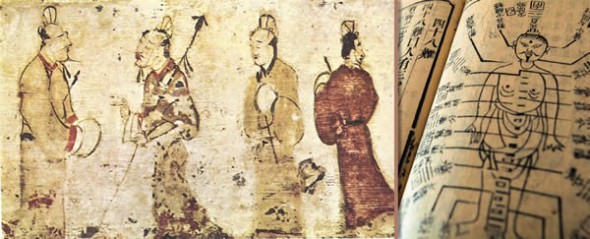
The Nine Pillars of Chinese Wisdom
in
Natural Healing and Disease Management
in
Natural Healing and Disease Management
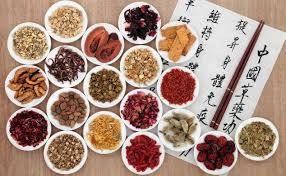




Happiness is a perception of the mind; wisdom is thus necessary for that right perception!
Chinese Natural Healing
Stephen Lau
Stephen Lau

The TAO Wisdom
of
Health and Healing
of
Health and Healing
Books about the TAO
According to TAO, the end of anything is always the beginning of something else; the material world is forever filled with these cycles of beginnings and endings. Get the wisdom to intuit these cycles of balance and harmony so that you may continue the rest of your life journey and live as if everything is a miracle.
According to TAO, healing begins with the mind, and not the body. Lao Tzu famously said: "A journey of a thousand miles begins with the first step." But the healing journey has no destination in mind. Just diligently continue the journey, and you will ultimately reach your destination.
TAO is the Way to understanding Biblical wisdom, which is not only inexplicable but also paradoxical. You have to believe in order to overcome your unbelief. So, human wisdom is the Way to spiritual wisdom.
TAO is the wisdom of Lau Tzu, the ancient sage from China. TAO comes from "Tao Te Ching" -- one of the most translated books in world literature due to its profound and controversial wisdom.
The TAO
TAO is the wisdom of Lao Tzu, an ancient sage from China more than 2,600 years ago. Unlike Confucius, Lao Tzy had no disciple. Lao Tzu, who was on the verge of leaving China for Tibet, was stopped at the city gate, and was told that he had to put down his wisdom into words before he could leave the war-infested country. Reluctantly and defiantly, he put down his wisdom in exactly 50,000 words with no punctuation -- what is known as “Tao Te Ching.”
Tao Te Ching had been interpreted by many different scholars over the centuries. Lao Tzu’s profound wisdom was spread worldwide and translated into multiple languages. In fact, Tao Te Ching has become one of the most translated books in world literature -- ranking with the Bible as one of the top ten.
TAO is the wisdom of Lao Tzu, an ancient sage from China more than 2,600 years ago. Unlike Confucius, Lao Tzy had no disciple. Lao Tzu, who was on the verge of leaving China for Tibet, was stopped at the city gate, and was told that he had to put down his wisdom into words before he could leave the war-infested country. Reluctantly and defiantly, he put down his wisdom in exactly 50,000 words with no punctuation -- what is known as “Tao Te Ching.”
Tao Te Ching had been interpreted by many different scholars over the centuries. Lao Tzu’s profound wisdom was spread worldwide and translated into multiple languages. In fact, Tao Te Ching has become one of the most translated books in world literature -- ranking with the Bible as one of the top ten.
The Wisdom
An Empty Mind
TAO begins with having an empty mind, which is more than just "thinking out of the box": it is reverse thinking to create your own box of thinking. An empty mindset originated from Lao Tzu:
"An empty mind with no craving and no expectation helps us let go.
Being in the world and not of the world, we attain heavenly grace.
With heavenly grace, we become pure and selfless.
And everything settles into its own perfect place."
(Lao Tzu, Tao Te Ching, chapter 3)
So, you must have an empty mind before you can accept new and unconventional ideas. Likewise, to intuit true human wisdom, you must have an empty mind capable of reverse thinking.
An empty mindset may free you from the many shackles of life that may have enslaved you, keeping you in bondage without your knowing it. So, be the master, and not just a slave of your own life. Live a simple lifestyle, deleting all the trimmings of life and living. Simplicity is clarity.
Mindfulness
Mindfulness is mental sharpness to know what is happening in the mind that brings about clarity of thinking, which is essential to human wisdom.
There is a close connection between the body and the mind. This body-mind connection in humans affects both the physical and the mental health of an individual, especially how that individual thinks and reacts.
Mindfulness begins with the body. Becoming mindful of your body in the present moment is putting your mind where your body is. This produces deep relaxation of both the body and mind -- an essential element for clarity of thinking that may be the pathway to attaining true human wisdom.
"watchful, like a man crossing a winter stream;
alert, like a man aware of danger;
courteous, like a visiting guest;
yielding, like ice about to melt;
simple, like a piece of uncarved wood;
hollow, like a cave;
opaque, like muddy water."
(Lao Tzu, Tao Te Ching, chapter 15)
Living in the Now
According to Lao Tzu, only the present is real: the past was gone, and the future is uncertain and unpredictable. When the mind stays in the now, it does not see the ego-self because it does not exist in the present, and only in the deceptive mind.
In the now, with clarity of mind, you may see the ultimate truths of self, others, as well as of everything around you. More importantly, you may also see your past follies in identifying yourself with your thoughts that have created your ego; you may also see your present efforts in striving to protect the ego created by yourself in the past, as well as your future futilities in expecting that your desires to sustain your ego will be fulfilled.
Living in the now is an awakening to the realities of all things.
"Living in the present moment,
we find natural contentment.
We do not seek a faster lifestyle,
or a better place to be.
We need the essentials of life,
not its extra trimmings.
Living in the present moment,
we focus on the experience of the moment.
Thus, we enjoy every aspect of simple living,
and find contentment in everyone and everything.
Living in contentment,
we grow old and die,
feeling contented."
(Lao Tzu, Tao Te Ching, chapter 80)
The Natural Cycle
The truth of the matter is that everything in life must follow a natural cycle, whether you like it or not, and that you must be patient because nothing is within your control, especially your destiny.
”That which shrinks
Must first expand.
That which fails,
Must first be strong.
That which is cast down
Must first be raised.
Before receiving, there must be giving.
This is called perception of the nature of things.
Soft and weak overcome hard and strong.”
(Lao Tzu, Tao Te Ching, chapter 36)
Spontaneity is the essence of the natural cycle. What goes up must eventually come down; life begets death; day is followed by night -- just like the cycle of the four seasons.
"Allowing things to come and go,
following their natural laws,
we gain everything.
Straining and striving,
we lose everything."
(Lao Tzu, Tao Te Ching, chapter 48)
"Strong winds come and go.
So do torrential rains.
Even heaven and earth cannot make them last forever."
(Lao Tzu, Tao Te Ching, chapter 23)
No Judgment and No Separation
According to TAO, you should not judge others, nor should you separate yourself from others. Being non-judgmental holds the key to attaining balance and harmony in a world of chaos and disharmony.
No choosing and No Picking
Following the natural cycle of all things, you do not need to pick and choose. Picking and choosing is only sickness of the mind: the futility in striving to control what is essentially uncontrollable.
"People naturally avoid loss and seek gain.
But with all things along the Way,
there is no need to pick and choose.
There is no gain without loss.
There is no abundance without lack.
We do not know how and when
one gives way to the other.
So, we just remain in the center of things,
trusting the Creator, instead of ourselves.
This is the essence of the Way."
(Lao Tzu, Tao Te Ching, chapter42)
Picking and choosing is synonymous with control of self, of others, and of everything around, which is against the laws of nature.
Controlling external events is futility.
Control is but an illusion.
Whenever we try to control,
we separate ourselves from our true nature.
Man proposes; the Creator disposes.
Life is sacred: it flows exactly as it should.
Trusting in the Creator, we return to our breathing,
natural and spontaneous, without conscious control.
In the same manner:
sometimes we have more,
sometimes we have less;
sometimes we exert ourselves,
sometimes we pull back;
sometimes we succeed,
sometimes we fail.
Trusting in the Creator, we see the comings and goings of things,
but without straining and striving to control them.
(Lao Tzu, Tao Te Ching, chapter 29
"Fame or the self, which is dearer?
Self or wealth, which is greater?
Gain or loss, which is more painful?
Accumulating or letting go, which causes more suffering?
Looking for status and security, we find only suffering.
Knowing our true nature, we find joy and peace.
With nothing lacking, the whole world belongs to us."
(Lao Tzu, Tao Te Ching, chapter 44)
Embracing everything is beneficial because it holds the key to enlightenment, which is the understanding of what TAO is all about..
No expectation and no over-doing
TAO emphasizes “wu-wei”, which means "no over-doing". Contrary to conventional wisdom, which focuses much on effort, TAO emphasizes "effortless" effort.
"The softest thing in the world
overcomes what seems to be the hardest.
That which has no form
penetrates what seems to be impenetrable.
That is why we exert effortless effort.
We act without over-doing.
We teach without arguing.
This is the Way to true wisdom.
This is not a popular way
because people prefer over-doing.
(Lao Tzu, Tao Te Ching, chapter 43)
Humility and the Ego
If the TAO could be summarized in one word, it is the word "humility."
Humility is the enemy of the ego, while pride is its best friend. With humility, you see who you really are, and not who you think or wish you were. With humility, you become aligned with the Creator, who provides you the wisdom in living in this material world.
Stephen Lau
Copyright© by Stephen Lau
An Empty Mind
TAO begins with having an empty mind, which is more than just "thinking out of the box": it is reverse thinking to create your own box of thinking. An empty mindset originated from Lao Tzu:
"An empty mind with no craving and no expectation helps us let go.
Being in the world and not of the world, we attain heavenly grace.
With heavenly grace, we become pure and selfless.
And everything settles into its own perfect place."
(Lao Tzu, Tao Te Ching, chapter 3)
So, you must have an empty mind before you can accept new and unconventional ideas. Likewise, to intuit true human wisdom, you must have an empty mind capable of reverse thinking.
An empty mindset may free you from the many shackles of life that may have enslaved you, keeping you in bondage without your knowing it. So, be the master, and not just a slave of your own life. Live a simple lifestyle, deleting all the trimmings of life and living. Simplicity is clarity.
Mindfulness
Mindfulness is mental sharpness to know what is happening in the mind that brings about clarity of thinking, which is essential to human wisdom.
There is a close connection between the body and the mind. This body-mind connection in humans affects both the physical and the mental health of an individual, especially how that individual thinks and reacts.
Mindfulness begins with the body. Becoming mindful of your body in the present moment is putting your mind where your body is. This produces deep relaxation of both the body and mind -- an essential element for clarity of thinking that may be the pathway to attaining true human wisdom.
"watchful, like a man crossing a winter stream;
alert, like a man aware of danger;
courteous, like a visiting guest;
yielding, like ice about to melt;
simple, like a piece of uncarved wood;
hollow, like a cave;
opaque, like muddy water."
(Lao Tzu, Tao Te Ching, chapter 15)
Living in the Now
According to Lao Tzu, only the present is real: the past was gone, and the future is uncertain and unpredictable. When the mind stays in the now, it does not see the ego-self because it does not exist in the present, and only in the deceptive mind.
In the now, with clarity of mind, you may see the ultimate truths of self, others, as well as of everything around you. More importantly, you may also see your past follies in identifying yourself with your thoughts that have created your ego; you may also see your present efforts in striving to protect the ego created by yourself in the past, as well as your future futilities in expecting that your desires to sustain your ego will be fulfilled.
Living in the now is an awakening to the realities of all things.
"Living in the present moment,
we find natural contentment.
We do not seek a faster lifestyle,
or a better place to be.
We need the essentials of life,
not its extra trimmings.
Living in the present moment,
we focus on the experience of the moment.
Thus, we enjoy every aspect of simple living,
and find contentment in everyone and everything.
Living in contentment,
we grow old and die,
feeling contented."
(Lao Tzu, Tao Te Ching, chapter 80)
The Natural Cycle
The truth of the matter is that everything in life must follow a natural cycle, whether you like it or not, and that you must be patient because nothing is within your control, especially your destiny.
”That which shrinks
Must first expand.
That which fails,
Must first be strong.
That which is cast down
Must first be raised.
Before receiving, there must be giving.
This is called perception of the nature of things.
Soft and weak overcome hard and strong.”
(Lao Tzu, Tao Te Ching, chapter 36)
Spontaneity is the essence of the natural cycle. What goes up must eventually come down; life begets death; day is followed by night -- just like the cycle of the four seasons.
"Allowing things to come and go,
following their natural laws,
we gain everything.
Straining and striving,
we lose everything."
(Lao Tzu, Tao Te Ching, chapter 48)
"Strong winds come and go.
So do torrential rains.
Even heaven and earth cannot make them last forever."
(Lao Tzu, Tao Te Ching, chapter 23)
No Judgment and No Separation
According to TAO, you should not judge others, nor should you separate yourself from others. Being non-judgmental holds the key to attaining balance and harmony in a world of chaos and disharmony.
No choosing and No Picking
Following the natural cycle of all things, you do not need to pick and choose. Picking and choosing is only sickness of the mind: the futility in striving to control what is essentially uncontrollable.
"People naturally avoid loss and seek gain.
But with all things along the Way,
there is no need to pick and choose.
There is no gain without loss.
There is no abundance without lack.
We do not know how and when
one gives way to the other.
So, we just remain in the center of things,
trusting the Creator, instead of ourselves.
This is the essence of the Way."
(Lao Tzu, Tao Te Ching, chapter42)
Picking and choosing is synonymous with control of self, of others, and of everything around, which is against the laws of nature.
Controlling external events is futility.
Control is but an illusion.
Whenever we try to control,
we separate ourselves from our true nature.
Man proposes; the Creator disposes.
Life is sacred: it flows exactly as it should.
Trusting in the Creator, we return to our breathing,
natural and spontaneous, without conscious control.
In the same manner:
sometimes we have more,
sometimes we have less;
sometimes we exert ourselves,
sometimes we pull back;
sometimes we succeed,
sometimes we fail.
Trusting in the Creator, we see the comings and goings of things,
but without straining and striving to control them.
(Lao Tzu, Tao Te Ching, chapter 29
"Fame or the self, which is dearer?
Self or wealth, which is greater?
Gain or loss, which is more painful?
Accumulating or letting go, which causes more suffering?
Looking for status and security, we find only suffering.
Knowing our true nature, we find joy and peace.
With nothing lacking, the whole world belongs to us."
(Lao Tzu, Tao Te Ching, chapter 44)
Embracing everything is beneficial because it holds the key to enlightenment, which is the understanding of what TAO is all about..
No expectation and no over-doing
TAO emphasizes “wu-wei”, which means "no over-doing". Contrary to conventional wisdom, which focuses much on effort, TAO emphasizes "effortless" effort.
"The softest thing in the world
overcomes what seems to be the hardest.
That which has no form
penetrates what seems to be impenetrable.
That is why we exert effortless effort.
We act without over-doing.
We teach without arguing.
This is the Way to true wisdom.
This is not a popular way
because people prefer over-doing.
(Lao Tzu, Tao Te Ching, chapter 43)
Humility and the Ego
If the TAO could be summarized in one word, it is the word "humility."
Humility is the enemy of the ego, while pride is its best friend. With humility, you see who you really are, and not who you think or wish you were. With humility, you become aligned with the Creator, who provides you the wisdom in living in this material world.
Stephen Lau
Copyright© by Stephen Lau

Chinese Natural Health
The Origin of Chinese Health
Chinese natural healing begins when health returns to its original state. According to traditional wisdom, Chinese health and healing is built on the premise of the following: qi (internal life energy); blood; jing (essence) and shen (spirit)
Qi
Qi is yang energy. It is important because it "moves" your body. Qi is the source of growth in your body. It can be replenished and fed. Qi is always in motion in the form of ascending, descending, entering, and leaving your body's organs and systems. Therefore, its motion should not be obstructed, especially since qi is responsible for transforming your food energy into blood. In addition to nourishing your blood and keeping it flowing, qi helps maintain your body's temperature. Qi plays a vital role in Chinese health and Chinese natural healing.
Blood
Blood is a "yin" substance. Chinese health and healing does not conceptualize blood and its processes in the same manner as Western medicine does. Food energy is transformed into blood, which is circulated around your body by the coordination of qi in the heart and in the chest.
Disharmony of the blood can result in "deficient blood" and "congealed blood." The former may lead to failure of the blood to nourish an organ or the body as a whole, resulting in palpitations and dizziness. The latter may lead to blockage, resulting in swelling and tumors. Therefore, blood is important to Chinese health and Chinese natural healing.
Jing
Jing is essence or the underlying substance of all organic life. It supports and nourishes your body. Jing is responsible for long-term change and development. In Chinese health and Chinese natural healing, jing is the initiator of a cycle of eight-year maturation, the absence of which is the cause of sexual dysfunction, infertility, premature aging, and inherited disorders.
Shen
Shen is a yang substance, which is the "spirit" of your body, manifested in your consciousness, personality, intellect, and other abstract qualities. Shen's disharmony results in confused or distorted thinking, insomnia, and other mental and psychological disorders.
These four elements form the foundation of Chinese health and Chinese natural healing.
According to TAO, the qi from Heaven (which is "yang") flows downwards into Earth (which is "yin"), and the qi from Earth flows upwards. Man (a combination of "yin" and "yang") lies between Heaven and Earth. The interaction of "yin" and "yang" becomes the dynamic of qi, the primary energetic force from which the basic substance of all life and matter is formed. Qi is responsible for the balance of "yin" and "yang," expressed in blood, jing, and shen (also known as the Three Treasures) for Chinese health and healing.
The Beginning of Chinese Health and Healing
"Yin" and "yang" form the basis of creation, and so they are also creators of disharmony. Chinese health and healing begins when there is balance and harmony of "yin" and "yang" in the Five Elements of your body.
Disease means disharmony in the body and the mind, and the English word "dis-ease" is the perfect translation for the TAO concept of illness. Therefore, according to TAO, healing is "returning to the roots" or "renewing life." Natural healing will not begin until you stop "wearing out" your body and mind.
Chinese healing is a long and slow process, and you have to be very patient. Remember: Nature cannot be rushed.
Are you still sick?
Chinese health is evidenced in your body, mind, and spirit. In the process of recovery. Examine your body to see if the natural healing process has begun.
Your tongue
For centuries, the Chinese have extensively used the tongue to diagnose disease and to determine an individual's overall health.
Look at your tongue in the mirror: closely observe the size, the shape, the contour surface, the margins, and the color of your tongue.
Any discoloration indicates a disorder present in your body
Black to brown color -- disorder in the large intestine
Bluish color -- defect in the heart
Pale color -- lack of blood in the body
Red color -- disorder in the liver
Yellow-green color -- defect in the liver
Whitish -- mucous formation, disorder in the stomach
Any depression on the surface may also indicate a problem.
Different parts of your tongue are related to different parts or organs of your body, and their conditions mirror their disorders: for example, crooked line in the center of the tongue may indicate backache; white in the center may indicate a toxic colon; cracks in the tongue may indicate colon disorder; small dots at the center of the tongue may indicate some heart disorder; dots on the inner sides of the tongue may indicate kidney disorder; and dots on the tip of the tongue may indicate lung disorder.
The Origin of Chinese Health
Chinese natural healing begins when health returns to its original state. According to traditional wisdom, Chinese health and healing is built on the premise of the following: qi (internal life energy); blood; jing (essence) and shen (spirit)
Qi
Qi is yang energy. It is important because it "moves" your body. Qi is the source of growth in your body. It can be replenished and fed. Qi is always in motion in the form of ascending, descending, entering, and leaving your body's organs and systems. Therefore, its motion should not be obstructed, especially since qi is responsible for transforming your food energy into blood. In addition to nourishing your blood and keeping it flowing, qi helps maintain your body's temperature. Qi plays a vital role in Chinese health and Chinese natural healing.
Blood
Blood is a "yin" substance. Chinese health and healing does not conceptualize blood and its processes in the same manner as Western medicine does. Food energy is transformed into blood, which is circulated around your body by the coordination of qi in the heart and in the chest.
Disharmony of the blood can result in "deficient blood" and "congealed blood." The former may lead to failure of the blood to nourish an organ or the body as a whole, resulting in palpitations and dizziness. The latter may lead to blockage, resulting in swelling and tumors. Therefore, blood is important to Chinese health and Chinese natural healing.
Jing
Jing is essence or the underlying substance of all organic life. It supports and nourishes your body. Jing is responsible for long-term change and development. In Chinese health and Chinese natural healing, jing is the initiator of a cycle of eight-year maturation, the absence of which is the cause of sexual dysfunction, infertility, premature aging, and inherited disorders.
Shen
Shen is a yang substance, which is the "spirit" of your body, manifested in your consciousness, personality, intellect, and other abstract qualities. Shen's disharmony results in confused or distorted thinking, insomnia, and other mental and psychological disorders.
These four elements form the foundation of Chinese health and Chinese natural healing.
According to TAO, the qi from Heaven (which is "yang") flows downwards into Earth (which is "yin"), and the qi from Earth flows upwards. Man (a combination of "yin" and "yang") lies between Heaven and Earth. The interaction of "yin" and "yang" becomes the dynamic of qi, the primary energetic force from which the basic substance of all life and matter is formed. Qi is responsible for the balance of "yin" and "yang," expressed in blood, jing, and shen (also known as the Three Treasures) for Chinese health and healing.
The Beginning of Chinese Health and Healing
"Yin" and "yang" form the basis of creation, and so they are also creators of disharmony. Chinese health and healing begins when there is balance and harmony of "yin" and "yang" in the Five Elements of your body.
Disease means disharmony in the body and the mind, and the English word "dis-ease" is the perfect translation for the TAO concept of illness. Therefore, according to TAO, healing is "returning to the roots" or "renewing life." Natural healing will not begin until you stop "wearing out" your body and mind.
Chinese healing is a long and slow process, and you have to be very patient. Remember: Nature cannot be rushed.
Are you still sick?
Chinese health is evidenced in your body, mind, and spirit. In the process of recovery. Examine your body to see if the natural healing process has begun.
Your tongue
For centuries, the Chinese have extensively used the tongue to diagnose disease and to determine an individual's overall health.
Look at your tongue in the mirror: closely observe the size, the shape, the contour surface, the margins, and the color of your tongue.
Any discoloration indicates a disorder present in your body
Black to brown color -- disorder in the large intestine
Bluish color -- defect in the heart
Pale color -- lack of blood in the body
Red color -- disorder in the liver
Yellow-green color -- defect in the liver
Whitish -- mucous formation, disorder in the stomach
Any depression on the surface may also indicate a problem.
Different parts of your tongue are related to different parts or organs of your body, and their conditions mirror their disorders: for example, crooked line in the center of the tongue may indicate backache; white in the center may indicate a toxic colon; cracks in the tongue may indicate colon disorder; small dots at the center of the tongue may indicate some heart disorder; dots on the inner sides of the tongue may indicate kidney disorder; and dots on the tip of the tongue may indicate lung disorder.
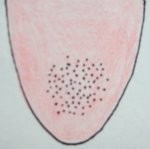
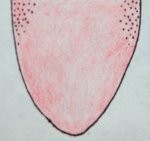
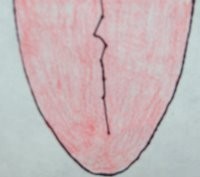
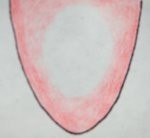

Chinese Natural Healing
Chinese healing is based on the "yin and yang" healing philosophy, and the principles of the Five Elements. Their balance and harmony becomes the foundation of health rejuvenation and natural healing.
The "Yin and Yang" Healing Philosophy
The "yin and yang" healing philosophy lies in the fundamental of Chinese culture. Literally, "yin" and "yang" refer to the dark side and sunny side of a hill, respectively.
In the symbol, the dark represents "yin"; the white represents "yang". As such, "yin" connotes darkness, coolness, moisture, restfulness, modesty, and descent, while "yang" represents brightness, warmth, dryness, activity, aggressiveness, and ascent. These are all opposite or contrasting characteristics.
In the symbol, the small black circle within the white shows that "yin" is always within the white "yang"; likewise, the small white circle within the black shows that "yang" is always within the black "yin." In other words, all things are both "yin" and "yang" simultaneously. For example, the sea, when it is dark, deep, and still, is "yin"; but the sea with its rolling waves rising and crashing may become "yang." Hence, all things, even when they are polar opposites, such as "yin" and "yang," are what they are only by relativity to the other. In fact, they are inter-dependent on each other. This is the gist of the philosophy of "yin and yang" -- which epitomizes the Chinese thinking and way of life, and which is critical to the understanding of Chinese natural healing.
In the symbol, the thinning tail of each moving into the other represents the consistent and constant transforming of one into the other. Indeed, "yin" and "yang" are continuously and naturally transforming into each other, such as inhaling and exhaling, being active and resting, eating and excreting, nourishing and cleansing. Even the natural rhythm of your body can be described as a continuous exchange of "yin" and "yang" -- and this flow is expressed in qi, (the positive energy) within your body.
For centuries, the Chinese have observed the importance of harmony, which is the key to health rejuvenation of an individual, requisite for natural healing. Oriental physicians have always believed that the imbalance of "yin" and "yang" is the primary cause of disease.
The concept of balance and harmony of life forces -- "yin" and "yang" -- is central to the Chinese healing methods that use food and herbs as medicine. In Chinese healing, disease is seen as the result of imbalance of qi (positive energy) in the body, which is essentially a reflection of the lack of harmony between "yin" and "yang."
In Chinese healing, the balance and harmony of "yin" and "yang" is governed by the Five Elements.
The Principles of the Five Elements in Chinese Healing
The Five Elements (wood, fire, earth, metal, and water), also known as "Wu Xing" (the Five Processes), represent the five processes not only fundamental to the cycles of Nature, but also corresponding to the human body.
In Chinese healing, the term "xing" means the process in which one thing acts upon another, thereby balancing and complementing each other -- just as "yin" and "yang" do.
In relation to the Five Elements, the cycle of these five processes can be represented as follows:
Wood feeds fire. Without wood, there will be no fire.
Fire creates ashes which form earth. Without fire, earth will not exist.
The metal inside earth is heated and liquefied by fire, thereby producing water through condensation. Without metal, there will be no water.
All these five processes are therefore inter-dependent on one another for existence in the form of a cycle of Nature: water nourishes trees or wood, without which there will be no fire, and without fire, there will be no earth, and without earth, there will be no metal, and without metal, there will be no liquefaction, generating no water.
Each of the Five Elements is equally important, and each of these five processes of action and interaction is essential to the cycle of Nature, embodying these five elemental characteristics.
The Five Elements, their characteristics, and their inter-relationships with your body can be summarized as follows:
Fire
Fire is hot, ascending, and energy-giving. In Nature, the fire element corresponds to late summer.
In your body, the fire element relates to your heart ("yin") and your small intestines ("yang").
Just as the fire element in Nature replenishes the earth, the heart in your body supports your spleen by providing the fire energy necessary for digesting your food. But too much fire energy in the heart may result in your being over talkative, as well as having excess perspiration and nervous tension.
In Chinese healing, joy or over-indulgence, if in excess, is the emotion which can create imbalance within the fire element.
Earth
Earth is growing, fertile, and productive. In Nature, the earth element corresponds to the season of summer.
In your body, the earth element relates to your stomach ("yang") and your spleen ("yin"). Your stomach begins the process of digestive breakdown, while your spleen transforms and transports the energy from food and drink throughout your body.
Just as the earth element in Nature generates metal, your spleen supports your lungs by giving it minerals, as well as qi, the inner positive life force.
In Chinese healing, pensiveness is the emotion which can create imbalance within the earth element.
Metal
Metal is conductive. In Nature, the metal element corresponds to the season of autumn or fall.
As a conductor, the metal element relates to your lungs ("yin"), which move vital energy throughout your body, and your large intestines ("yang"), which are responsible for receiving and discharging wastes from your body.
Just as the metal element in Nature produces water, the lungs in your body support your kidneys by sending moisture which your kidney collects and stores.
In Chinese healing, sadness is the emotion which can create imbalance within the metal element.
Water
Water is descending and flowing. In Nature, the water element corresponds to the season of winter.
In your body, the water element relates to your urinary bladder ("yang"), and your kidneys ("yin"). Your bladder receives, stores, and excretes urine. Water metabolism flushes fluids throughout your body, moistening it, and then accumulating in your kidneys, which also store the essence, and serve as the root of "yin" and "yang" for your entire body.
Just as the water element in nature nourishes wood, the essence stored in your kidneys generates the blood in your liver.
In Chinese healing, fear and paranoia are the emotions which create imbalance within the water element.
Wood
Wood is strong and rooted. In Nature, the wood element corresponds to the season of spring.
In your body, the wood element relates to your liver ("yin"), and your gallbladder ("yang"). Your liver stores blood, and regulates the smooth flow of qi, the positive life force. Your gall bladder is responsible for storing and excreting bile.
Just as the wood element feeds fire, the liver blood feeds your heart.
In Chinese healing, anger is the emotion that can create imbalance within the liver, while indecisiveness is related to your gallbladder. Your liver and gallbladder are responsible for your anger. In Chinese healing, the liver is “the house of the soul.” If you have a lot of ideas and wishes but cannot put them into reality, it may be due to lack of qi in your gallbladder.
The Five Elements and Five Body Organs
In Western anatomy and physiology, body organs are seen in terms of structures and functions. But in Chinese healing, according to the Five Elements, your body organs are a network of functions and interrelationships, manifested in the balance and harmony of "yin" and "yang" expressed in your qi.
Heart
In Chinese healing, your heart, which has a relationship with your tongue, blood vessels, and external ear, belongs to the element of fire; so do your small intestines.
Your heart is associated with bitter taste, and is adversely affected by heat.
Your heart controls your emotion of joy and shock.
Symptoms of your heart dysfunction include: anxiety, chest pain, disturbed sleep, excessive perspiration, and nervousness.
Lungs
In Chinese healing, your lungs, which have a relationship with your hair, lymph, and skin, belong to the element of metal; so do your large intestines.
Your lungs are associated with spicy taste, and are affected by dryness.
Your lungs control your emotion of sadness.
Symptoms of your lung dysfunction include: coughing, dryness in nose and throat, respiratory allergies, shallow breathing, and wheezing.
Spleen
In Chinese healing, your spleen, which has a relationship with your gums, lips, and mouth, belongs to the earth element; so does your stomach.
Your spleen is associated with sweet taste, and is adversely affected by dampness.
Your spleen controls your emotion of worry.
Symptoms of your spleen dysfunction may include: abdominal bloating, bad breath, constipation, fatigue, poor digestion of food, and craving sweet and starchy foods.
Liver
In Chinese healing, your liver, which has a relationship with your eyes, nails, and tendons, belongs to the element of wood; so does your gallbladder.
Your liver is associated with sour taste, and is adversely affected by wind.
Your spleen controls your emotion of anger.
Symptoms of your liver dysfunction include: anger, depression, irregular bowel movement, migraine, stiff neck, premenstrual tension, irregular or painful menstruation, as well as intermittent pains in the ears, throat, chest, ribs, liver, and gallbladder.
Kidneys
In Chinese healing, your kidneys, which have a relationship with your anus and urethra, brain, bone and marrow, belong to the element of water; so does your bladder.
Your kidneys are associated with salty taste, and are adversely affected by cold.
Your kidneys control your emotion of fear.
Symptoms of your kidney dysfunction include: apathy, back and knee pain, difficulty in awakening in the morning, impaired hearing or vision, low libido, loss of stamina and endurance, and premature ejaculation.
The Five Elements and Health Rejuvenation
In Chinese healing, in addition to their inter-relationship and inter-dependence, the Five Elements control and restrain one another: fire controls metal, which controls wood, which controls earth, which controls water, which controls fire, thereby forming a continuous controlling cycle in Nature, which balances and harmonizes everything, including your health, for natural healing.
In Chinese healing, the balance and harmony in you body, a component of natural healing, is achieved only by the control and restrain of the Five Elements in your body.
In Nature, fire melts metal. Likewise, the blood of your heart controls the functioning of your lungs.
In Nature, metal (a blade) cuts wood. Likewise, your lungs control the blood gathered by your liver.
In Nature, wood breaks up earth through its roots. Likewise, your liver controls the digestive functions of your spleen.
In Nature, earth dams water. Likewise, your spleen controls your kidney's ability to concentrate and retain moisture.
In Nature, metal (a blade) cuts wood. Likewise, your lungs control the blood gathered by your liver.
In Nature, wood breaks up earth through its roots. Likewise, your liver controls the digestive functions of your spleen.
In Nature, earth dams water. Likewise, your spleen controls your kidney's ability to concentrate and retain moisture.
In Nature, water puts out fire. Likewise, the essence of your kidneys controls the fire of your heart.
The natural inter-restrain puts each of the Five Elements under control, just as the appropriate functioning of one organ puts the other organs under control for balance and harmony. In Chinese healing, the balance of the Five Elements is conducive to your natural healing and health rejuvenation. However, such balance may be upset by the disharmony between "yin" and "yang" in your body.
The Art and Science of the "Yin and Yang" Eating
To the Chinese, eating is an art and also a science: eating is more than stuffing food into the mouth to satisfy one's palette or to provide nutrients for the body.
The "yin and yang" eating is based on the basic principles to restore balance and eliminate imbalance. Essentially, it is a natural approach to physical, mental, and spiritual well-being through the consumption of food influenced by the forces of "yin" and "yang," which directly impact your organs through balance and control of the Five Elements.
The "yin and yang" eating focuses on living in harmony with Nature with a simple balanced diet of natural food, thereby instrumental in natural healing for health rejuvenation; it plays a pivotal role in Chinese healing.
Disharmony and Disease in Chinese Healing
In Chinese healing, health is balance, and disease is imbalance. Disharmony is the root of pathogens.
In Chinese healing, disharmony is manifested in the following contrasting conditions, which require balance for optimum health rejuvenation:
Excess and deficient
Sudden illness is excess; chronic illness suggests deficiency.
Interior and exterior
Disharmony can originate from inside your body, such as diseases caused by deficiency, emotion or stagnation; also, disharmony can be caused by exterior factors, such as airborne viruses or bacterial infections.
Hot and cold
Your liver is hot, while your kidneys are cold. Likewise, disharmony can be hot or cold according to the way it affects your body.
Damp and dry
Swollen tissue, excess phlegm or other body fluids are examples of dampness, which promotes the growth of bacteria, virus, and fungus. Blood or "yin" deficiency is the cause of dryness.
Lifestyle Pathogens in Chinese Healing
The way you live is a true reflection of the philosophy of "yin" and "yang," as expressed in excess and deficiency of the characteristics of each of the Five Elements.
"Yin" embraces interior, cold, as well as conditions and symptoms related to deficiency; "yang" embraces exterior, heat, as well as conditions and symptoms related to excess. The deficiency in "yin" is manifested in hot flushes, nervous exhaustion, and tension; the deficiency in "yang" is evidenced in backache, constipation, exhaustion, impotence, and night sweats. The excess of "yin" is observed in fluid retention, lethargy, mucus-forming, and shivering; the excess of "yang" reveals itself in bad temper, fever, headache, high blood pressure, impatience, and rapid pulse.
In Chinese healing, your lifestyle, in particular your diet, is largely responsible for the pathogens resulting from such excess or deficiency. Overeating or eating too much uncooked or cold food may weaken your spleen, thus causing diarrhea, heartburn, nausea, and vomiting. Over-indulgence in alcohol and excess of fatty or hot, pungent food may produce dampness and heat in your spleen and stomach, resulting in hypertension, cancer, or heart disease. Too little food intake may also precipitate blood and qi deficiency, leading to emaciation, lassitude, and palpitations.
In addition, lack of exercise or physical activity may cause your qi to stagnate. Regular exercise, as part of lifestyle, is critical to maintaining the flow of energy, without which you become vulnerable to pathogens. However, excessive or too energetic exercise, such as aerobic exercise, may also upset the natural pattern of harmony created in your mind and spirit by your vigorous body movements, thereby instrumental in creating pathogens as well. This may explain why Chinese exercises are more subdued and less vigorous, such as Qi Gong and Tai Chi.
Stress in daily life may often induce indigestion, leading to digestive disorders.
Eliminating Disease the Chinese Way
In Chinese healing, the basic principles to restore the balance of "yin" and "yang" and hence eliminating disease due to the imbalance, are as follows:
Any excess must be reduced.
Any deficiency must be remedied.
Any heat must be cooled.
Any cold must be warmed.
Any dryness must be moistened.
Any dampness must be dried.
In Chinese healing, your stomach is called the "sea of grain and water" where everything is assimilated. As earth element, your stomach ("yang") is known to easily become dry, and so it has to be balanced or nourished by your spleen ("yin") which is in charge of transforming dampness -- blood and qi -- to the rest of your body. Just as the earth assumes the position of centeredness, balance, and harmony in Nature, the spleen/stomach network is your body's center of balance. Spleen is the most important organ in restoring balance because it plays a pivotal role not only in the process of digestion but also in the production of blood and qi in your body.
Simply put, in Chinese healing, if you force yourself to eat when you are not hungry, your spleen will suffer. If you force yourself to drink when you are not thirsty, your stomach will bloat. If you eat beyond capacity, the blood vessels in which your qi circulates will become obstructed, and your body's center (stomach region) will become jammed and shut off. If you eat too little, on the other hand, your body will become emaciated, your stomach will grow anxious, and your thoughts will become unsteady. If you eat contaminated food, your heart's ability to differentiate will become blurred, and you will grow more and more restless. If you eat things that you should not eat, you will have disease.
Therefore, in Chinese healing, it is most important to consume your food at the appropriate time, to drink our fluids in regular intervals, and to avoid both overeating and hunger pains. If you eat and drink according to these simple guidelines, then not only your spleen/stomach network itself will remain unspoiled and function perfectly, but also your other body organs will all be in a harmonious state of health and well-being, preparing the groundwork for natural healing and recovery.
The capability of your spleen and stomach to transform food into nutrients is dependent on the two essential qualities of fire and water. Your spleen and stomach cannot do this by themselves. When fire is in a state of excess, your spleen and stomach will be dry; when water is in a state of excess, your spleen and stomach will be damp. Either situation will result in disharmony and disease.
Generally, eating a balanced diet of mostly grains, fruits and vegetables will restore balance in your spleen. Avoid dairy products and deep-fried foods, which are most difficult to digest. Also, eating a completely raw food diet is not recommended, despite the benefit of preserving enzymes and nutrients in eating raw. The reason is that raw foods are generally more difficult to digests than their cooked counterparts are, even though some of the enzymes and nutrients are lost in the process of cooking. This is one reason why there is no salad bar in a Chinese restaurant.
If your spleen manifests severe symptoms of deficiency, stagnation in your blood and qi, as well as acute conditions of dampness, cold and heat, the following remedies are recommended:
Qi deficiency
In Chinese healing, symptoms of qi deficiency are dizziness, fatigue, pale complexion, and shortness of breath.
Eat plenty of foods from the earth element: millet, Garbanzo bean; cabbage, carrot, parsnip, spinach, squash, yam; date, fig, orange, papaya, pineapple, strawberry; lotus seed, pine nut, pumpkin seed; eel, and little meat.
Blood deficiency
In Chinese healing, blood deficiency is essentially long-term qi deficiency with more serious symptoms of dizziness, fatigue, and palpitations.
In addition to foods from the earth element, eat cayenne pepper, carrot, dark leafy green, lotus root, mulberry leaf; grape, longan (a type of Chinese fruit); animal liver and some meat, such as chicken.
Qi stagnation
In addition to the symptoms of qi deficiency, qi stagnation may result in chest pain and white-coated tongue. Eat more beans and vegetable soup flavored with black pepper as a moving agent.
Blood stagnation
In Chinese healing, the symptoms of blood stagnation are more severe than those of qi stagnation.
Eat plenty of aduki bean, chive, eggplant, garlic, and scallion.
Dampness
In Chinese healing, dampness in your spleen is due to eating too much cold, raw food or greasy food, as well as excessive dairy and animal products, which are difficult to digest. Poor digestion leads to loose stools, loss of appetite, and a tongue with a thick white coating.
Eat foods which tend to dry dampness, such as rye, scallion, and turnip.
Balance based on food taste
Bitter (fire element) foods are generally cooling ("yin"), encouraging contraction and descending of energy.
Sweet (earth element) foods are generally strengthening ("yang"), encouraging energy to expand upward and outward.
Pungent (metal element) foods are generally warming ("yang"), encouraging energy to expand and move outward.
Salty (water element) foods are generally cooling ("yin"), encouraging energy to move inward and downward.
Sour (wood element) foods are generally cooling (yin), encouraging energy to contract and collect.
The Yin and Yang Foods in Chinese Healing
Every food has an effect on your body's metabolic temperature, which is different from your body temperature, and which is the heat energy generated through all your organ systems from the food you eat as well as from your digestive system. Some foods, such as tofu or ice cream, produce a characteristic internal cold. Others, such as ginger or chicken, generate internal heat. If you eat too much warming food, you increase the chance that your condition will become too warm. If it does, you might come down with a "hot" illness. Some colds, for example, marked by a dry or sore throat, fever, and sweating, can be caused by too much heat. The way to help correct the underlying imbalance that brought on that condition is to eat more cooling foods.
For example, to treat too much cold in your body requires the following "warming" remedies:
Select your foods mostly from "hot," "warm," and "neutral" foods, such as garlic, ginger, green chive, pepper, pumpkin, apple, onion, and mutton (lamb).
Prepare soup from the following ingredients: two teaspoons of ginger; two teaspoons of scallion stalk; and one tablespoon of organic molasses.
Make a bowl of porridge from the following ingredients: a small fresh pumpkin; one cup of millet; three cups of water.
The first step toward remedying a condition -- whether it is acute or chronic -- is to add the proper balancing foods to your daily diet.
Buddhist Philosophy of Health Rejuvenation in Natural Healing
The Buddhist philosophy of health rejuvenation and natural healing is simple: balance and harmony.
When your body receives the necessary nutrients from pure, whole foods, it has the ability to bring itself back into balance, thereby attaining self-healing.
When you give your body a drug that replaces a substance your body is capable of making itself, your body then becomes weaker, and begins not only to manufacture less of that substance but also to become more dependent on the outside source, which is usually the drug. No drug can give you insight into the circumstances that created your problems. At best, it can only temporarily assuage the physical pain created by your situation. Remember, there are no miracle drugs, only wholesome self-healing. No drug can give you insight into the circumstances that created your problems.
To illustrate, your reaction to stress may result in a headache, an allergy, or an angry outburst. All these responses epitomize your problems in the wood element. If you treat your headache with a drug, be it Advil or Tylenol, you deprive yourself the opportunity of bringing your wood element back into balance, and many undesirable symptoms would persist, if not repeat themselves.
What you need, instead, is a real look at the source of your inability to attain the balance in your body, mind, and spirit. If you feed the gland or that part of your body that is weak with the right combination of foods or nutrients, you make it stronger. Your goal is to bring it back into balance so that it can begin to make the required substance in the desired amount. This is where yin and yang diet plays a significant role.
Buddha once said "There are nine causes for the premature, unexpected end to human life. The first five of these are related to one’s diet; and the rest are related to one's improper conduct."
The five causes related to diet are:
One should not eat what should not be eaten.
One should not overeat.
One should not eat contrary to custom.
One should not eat when one has not digested one’s previous meal.
One should not retain undigested food in one’s body.
Buddha’s wisdom underscores the rejuvenation of the "yin" and "yang" foods through balance, harmony, and moderation.
Stephen Lau
Copyright© by Stephen Lau




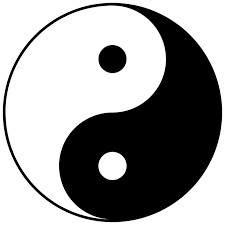
A BLOG
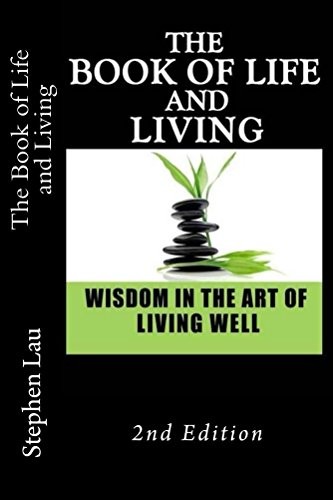
A cancer diagnosis is not a death sentence. Instead, it is a life-learning lesson for self-discovery and health-recovery. Congratulations! It may be a blessing in disguise.
Myasthenia Gravis is one of the many autoimmune diseases that attack a compromised immune system. According to conventional medicine, there is no known cure. But the author cured his own disorder through his own holistic approach.
Free yourself from your self-delusions created by your self-consciousness of who and what you think you are. With the integration of both conventional and ancient wisdom, you may begin to live your life very differently.
Wisdom in living is understanding the impermanence of all things: that is, nothing lasts, and everything remains only with that very present moment; what goes up must also come down; life is inevitably followed by death.
Chinese Health
and
Living Wisdom
and
Living Wisdom
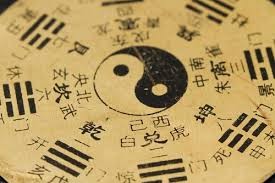
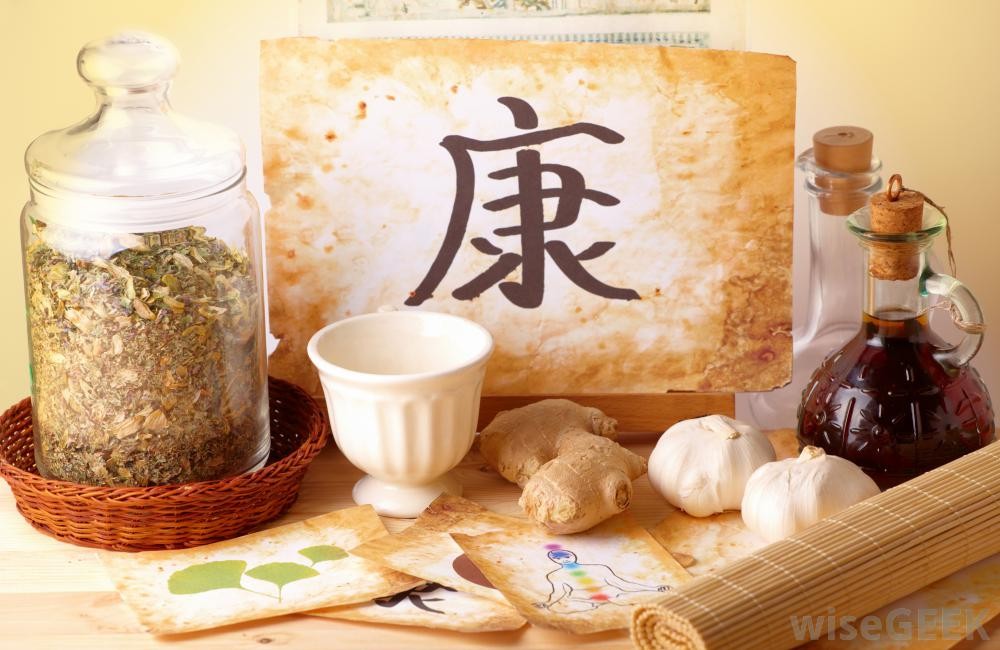
Chinese Natural Healing
Stephen Lau
Stephen Lau
Get the TAO wisdom to live every aspect of your daily life in balance and harmony, including: the following: growing up, pursuing your life passions and careers, making a living and earning your money, maintaining your good relationships, getting married, starting a family and raising your children, taking care of your health and healing, confronting issues of aging and dying. The TAO shows you how to live as if everything is a miracle.
Click here to get your wisdom.
Click here to get your wisdom.
Get the wisdom to love yourself and others, such as self-acceptance and loving-kindness, as well as to help yourself and your marriage partner to survive and thrive in your marriage.
Click here to find out how to get genuine love and accountability in marriage to live in reality, instead of in fantasy.
Click here to find out how to get genuine love and accountability in marriage to live in reality, instead of in fantasy.
This book shows you how the TAO wisdom can help you live every aspect of your life in reality, which is accountability to self and others, and not just to the law and order of your country.
Click here to get your book.
Click here to get your book.

MYASTHENIA GRAVIS
NO MORE
NO MORE

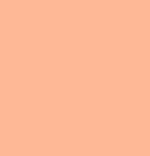

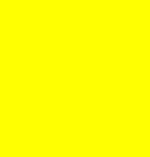
Get this book FREEDOM with BONDAGE to help you live with your "accountability" in different phases of your life.
NEW BOOK: Use TAO wisdom and spiritual wisdom to live in reality with accountability--a life with no depression.



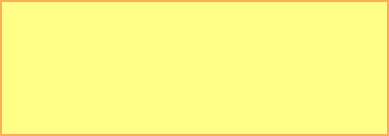
ONENESS WITH ALL LIFE
Find out how to connect with others to avoid human conflicts and confrontations.
We are all connected with one another, and "No man is an island."
Find out how to connect with others to avoid human conflicts and confrontations.
We are all connected with one another, and "No man is an island."
FREEDOM TO CHOOSE YOUR WORKING
Life must have a meaning, and living must have a purpose with different goals and objectives. They determine what you are going to do with your respective goals and objectives.
Choosing
Living is about “doing” this and that through your decisions and actions to achieve those life goals and objectives defined by your “being.”
Who do you want to become? A learner to acquire skills to do what you want to do? A mentor to help others get what they want? An expert to broaden and improve your insights into a special field? You have your freedom to choose.
Your “being” and your “doing” go hand in hand throughout your consolidation phase. Although they may change over time, they must become your “working”—an essential component of your life and living.
Freedom
You have your freedom to choose your working.
Do you have the education or the skills to do what you want to do?
If not, then you have your freedom to do something about that.
If you have self-doubt about your capability to get the education or to acquire the technical skills, then you have only two options: changing your pre-conceived mindset about what you can and cannot do; accepting who you think you are and all the consequences of being your true self.
The first option is about changing yourself. Life is all about changes and getting wisdom from those positive changes. Without changes, nothing can or will be done and you will just continue to remain who you are. The second option is about accepting a low-paying job, such as working at the checkout of a grocery store.
Bondage
Not accepting a low-paying job while doing nothing to change yourself is your bondage to committing crimes, such as stealing, burglarizing, and robbing.
The only way to free yourself from your bondage is to become a professional with your expertise backed by related training to earn a higher income; or to start a business with your own innovative ideas inspired by your passion, your motivation, and your perseverance.
The bottom line: Living is about doing, and not just about your talking or your dreaming.
FREEDOM with BONDAGE shows you how to "free" yourself from your bondage to the flesh. Once you are free from your bondage, spiritual wisdom will open your heart and turn you into a believer.
Stephen Lau
Copyright© by Stephen Lau
Life must have a meaning, and living must have a purpose with different goals and objectives. They determine what you are going to do with your respective goals and objectives.
Choosing
Living is about “doing” this and that through your decisions and actions to achieve those life goals and objectives defined by your “being.”
Who do you want to become? A learner to acquire skills to do what you want to do? A mentor to help others get what they want? An expert to broaden and improve your insights into a special field? You have your freedom to choose.
Your “being” and your “doing” go hand in hand throughout your consolidation phase. Although they may change over time, they must become your “working”—an essential component of your life and living.
Freedom
You have your freedom to choose your working.
Do you have the education or the skills to do what you want to do?
If not, then you have your freedom to do something about that.
If you have self-doubt about your capability to get the education or to acquire the technical skills, then you have only two options: changing your pre-conceived mindset about what you can and cannot do; accepting who you think you are and all the consequences of being your true self.
The first option is about changing yourself. Life is all about changes and getting wisdom from those positive changes. Without changes, nothing can or will be done and you will just continue to remain who you are. The second option is about accepting a low-paying job, such as working at the checkout of a grocery store.
Bondage
Not accepting a low-paying job while doing nothing to change yourself is your bondage to committing crimes, such as stealing, burglarizing, and robbing.
The only way to free yourself from your bondage is to become a professional with your expertise backed by related training to earn a higher income; or to start a business with your own innovative ideas inspired by your passion, your motivation, and your perseverance.
The bottom line: Living is about doing, and not just about your talking or your dreaming.
FREEDOM with BONDAGE shows you how to "free" yourself from your bondage to the flesh. Once you are free from your bondage, spiritual wisdom will open your heart and turn you into a believer.
Stephen Lau
Copyright© by Stephen Lau
